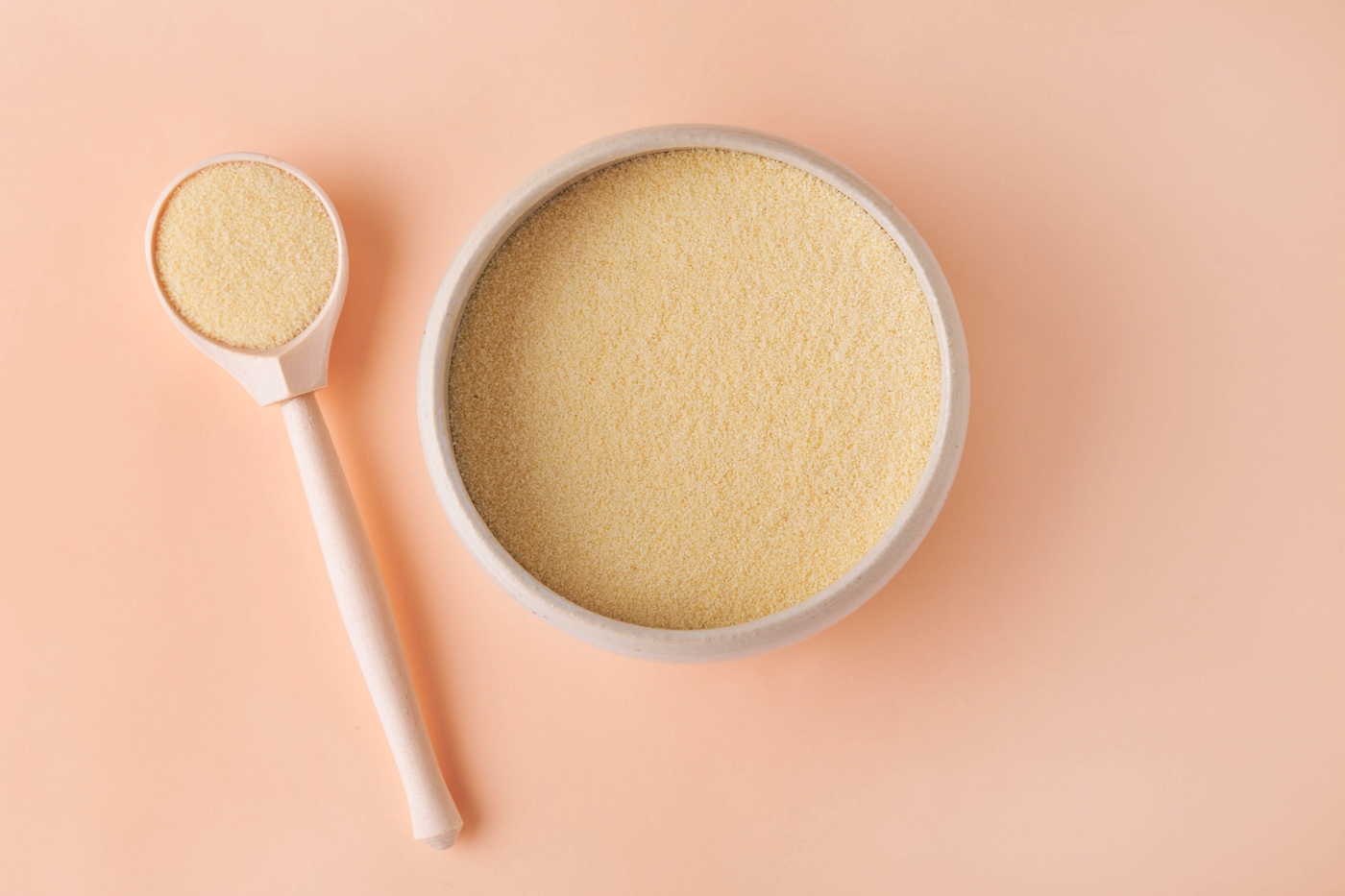

Featured
How To Help Your Gut Health
Published: September 1, 2023
Learn how to improve your gut health with our featured tips and tricks. Take control of your digestive system for a healthier you.
Introduction
Gut health has become a hot topic in recent years, and for good reason. Your gut plays a significant role in your overall well-being, affecting everything from digestion to immunity and even mental health. Maintaining a healthy gut is essential for a balanced and thriving life.
But what exactly is gut health? Simply put, it refers to the optimal functioning of your digestive system, which includes the stomach, intestines, and the complex community of microbes that reside within it. This community, known as the gut microbiota, is composed of trillions of bacteria, viruses, and fungi, collectively known as the microbiome.
The microbiome is responsible for various essential functions, such as aiding in digestion, synthesizing vitamins, regulating metabolism, and supporting your immune system. When the gut microbiome is out of balance, it can lead to a range of health problems, including digestive disorders, autoimmune diseases, and even mental health issues.
Understanding the importance of gut health is crucial for taking control of your overall well-being. By prioritizing your gut health, you can improve digestion, boost your immune system, enhance nutrient absorption, and promote mental clarity.
In this article, we will explore the significance of maintaining a healthy gut and provide you with practical tips on how to improve and support your gut health. Whether you’re experiencing digestive issues or simply want to optimize your well-being, these tips will help you on your journey to a healthier gut.
What is Gut Health?
Gut health is a term that encompasses the overall well-being of your digestive system, specifically the gut microbiome. Your gut microbiome is a complex ecosystem made up of trillions of microorganisms, including bacteria, viruses, and fungi, that reside in your gastrointestinal tract.
These microorganisms play a crucial role in maintaining good gut health. They help break down food, absorb nutrients, regulate metabolism, produce vitamins, and support a robust immune system. In a healthy gut, there is a balance of beneficial bacteria that work symbiotically to keep your digestive system functioning optimally.
However, various factors can disrupt this delicate balance and negatively impact your gut health. These factors include a poor diet, stress, lack of sleep, antibiotic use, and environmental toxins. When the gut microbiome is imbalanced, it can lead to gastrointestinal issues, inflammation, and a weakened immune system.
It’s important to note that gut health extends beyond just digestion. Research has shown that the gut microbiome also influences mental health, as the gut and the brain communicate through a complex network known as the gut-brain axis. An imbalanced gut microbiome has been linked to mental health conditions like anxiety and depression.
Therefore, nurturing a healthy gut is essential for overall well-being. By taking care of your gut health, you can improve digestion, boost immunity, enhance nutrient absorption, support mental clarity, and even promote a positive mood.
In the next sections, we will delve into the importance of gut health and discuss signs of poor gut health. By understanding the significance of a healthy gut and being aware of the signs to watch out for, you can take proactive steps to improve your gut health and overall quality of life.
The Importance of Gut Health
Gut health plays a vital role in maintaining overall wellness. The gut microbiome is not only involved in digestion but also impacts the immune system, nutrient absorption, and even mental health. Understanding the importance of gut health can empower you to take proactive steps towards improving and maintaining a healthy gut.
One of the key functions of the gut microbiome is aiding in the digestion and absorption of nutrients. The beneficial bacteria in your gut produce enzymes that help break down food, making it easier for your body to absorb essential vitamins, minerals, and macronutrients. A healthy gut microbiome ensures optimal nutrient absorption, which is crucial for overall health and vitality.
Furthermore, a significant portion of the immune system is located in the gut. The gut microbiome helps regulate and support the immune response, protecting your body against harmful pathogens. When your gut health is compromised, the immune system can become weakened, leading to a higher susceptibility to infections, allergies, and autoimmune conditions.
In recent years, research has also highlighted the crucial role that the gut microbiome plays in mental health. The gut and brain are intricately connected through the gut-brain axis. The gut microbiome produces neurotransmitters and chemicals that play a role in mood regulation and mental well-being. An imbalanced gut microbiome has been associated with anxiety, depression, and other mental health disorders.
Additionally, a healthy gut can contribute to maintaining a healthy weight. Studies have shown that the composition of the gut microbiome differs between individuals who are overweight and those who are lean. Certain bacterial strains found in a healthy gut may promote weight regulation and metabolic balance.
Overall, the importance of gut health cannot be overstated. A healthy gut microbiome supports digestion, strengthens the immune system, influences mental health, and contributes to weight management. Taking care of your gut health should be a priority in your overall wellness journey.
In the next section, we will discuss the signs that indicate poor gut health. By being aware of these signs, you can assess and address any imbalances in your gut microbiome.”
Signs of Poor Gut Health
When your gut health is compromised, your body may exhibit several signs or symptoms. Recognizing these signs can help you identify potential imbalances in your gut microbiome and take proactive steps to improve your gut health.
1. Digestive Issues: One of the most common signs of poor gut health is digestive problems. These can include frequent gas, bloating, constipation, diarrhea, or irritable bowel syndrome (IBS). If you consistently experience these symptoms, it may indicate an imbalance in your gut microbiome.
2. Food Sensitivities: If you find that certain foods trigger digestive discomfort or allergic reactions, it could be a sign of poor gut health. When the gut lining becomes compromised, undigested food particles and toxins can leak into the bloodstream, triggering an immune response and causing food sensitivities or allergies.
3. Fatigue and Low Energy: The gut microbiome is responsible for synthesizing vitamins and extracting energy from the food we eat. When there is an imbalance in the gut, nutrient absorption can be compromised, leading to fatigue, low energy levels, and nutrient deficiencies.
4. Mood Disorders: As mentioned earlier, the gut and brain are interconnected through the gut-brain axis. An imbalanced gut microbiome can impact neurotransmitter production and communication between the gut and the brain, leading to mood disorders such as anxiety, depression, or even brain fog.
5. Weakened Immune System: The gut microbiome plays a crucial role in supporting the immune system. If you frequently catch colds or infections, it could be a sign of poor gut health. An imbalanced gut microbiome can weaken the immune response and make you more susceptible to illnesses.
6. Skin Issues: Your gut health can also manifest in the condition of your skin. Skin conditions like acne, eczema, or psoriasis can be linked to an imbalanced gut microbiome. Inflammation in the gut can lead to systemic inflammation, which may manifest as skin issues.
Keep in mind that these signs may not solely indicate poor gut health, as they can be caused by other factors as well. It’s important to consult with a healthcare professional for an accurate diagnosis.
Next, we will explore practical tips on how to improve gut health. By implementing these tips, you can optimize your gut microbiome and support better overall health.
Tips for Improving Gut Health
Maintaining a healthy gut is crucial for overall well-being. Fortunately, there are several practical steps you can take to improve and support your gut health. By incorporating these tips into your lifestyle, you can optimize your gut microbiome and promote a healthier digestive system.
- Eat a Balanced and Fiber-Rich Diet: A diet rich in fruits, vegetables, whole grains, and legumes provides essential nutrients and promotes a diverse gut microbiome. Fiber, in particular, is important for gut health as it acts as a prebiotic, feeding the beneficial bacteria in your gut.
- Stay Hydrated: Drinking enough water is essential for maintaining proper digestion and a healthy gut. It helps soften the stool and prevents constipation.
- Limit Sugar and Processed Foods: High sugar intake and processed foods can negatively affect the balance of your gut microbiome. These foods are often low in nutrients and can promote the growth of harmful bacteria.
- Incorporate Probiotics into Your Diet: Probiotics are beneficial bacteria that can help restore the balance of your gut microbiome. You can find probiotics in fermented foods like yogurt, sauerkraut, kimchi, and kefir, or you can consider taking a high-quality probiotic supplement.
- Manage Stress Levels: Chronic stress can disrupt the balance of your gut microbiome. Engage in stress-reducing activities such as yoga, meditation, deep breathing exercises, or engaging in hobbies.
- Exercise Regularly: Regular physical activity not only supports overall health but also promotes healthy digestion. Exercise can help regulate bowel movements and reduce the risk of gastrointestinal issues.
- Get Enough Sleep: Poor sleep can disrupt the gut microbiome and lead to digestive issues. Aim for 7-8 hours of quality sleep each night to support optimal gut health.
By implementing these tips into your daily routine, you can improve your gut health and experience the benefits of a healthier digestive system. Remember, consistency is key, as gut health is an ongoing process that requires long-term commitment.
Eat a Balanced and Fiber-Rich Diet
One of the most important factors in maintaining a healthy gut is consuming a well-balanced diet that is rich in fiber. A diet that is diverse and includes a variety of whole foods provides essential nutrients that support gut health and nourish the beneficial bacteria in the gut microbiome.
Fiber is particularly important for gut health as it acts as a prebiotic, which means it serves as food for the beneficial bacteria in your gut. Including a variety of fiber-rich foods in your diet can promote the growth of these beneficial bacteria and support a healthy gut microbiome.
Here are some tips for incorporating a balanced and fiber-rich diet into your daily routine:
- Include a variety of fruits and vegetables: Aim to consume a rainbow of colorful fruits and vegetables on a daily basis. These plant-based foods are rich in fiber, vitamins, minerals, and antioxidants that benefit both your gut and overall health.
- Choose whole grains: Opt for whole grains like quinoa, brown rice, oats, and whole wheat bread instead of refined grains. Whole grains contain more fiber and nutrients than their refined counterparts.
- Increase legume intake: Legumes such as lentils, beans, and chickpeas are excellent sources of dietary fiber. They can be added to soups, salads, or main dishes for a fiber and protein boost.
- Eat fermented foods: Fermented foods like yogurt, sauerkraut, kimchi, and kefir contain beneficial probiotics that can support a healthy gut. These foods can help increase the population of beneficial bacteria in your gut.
- Snack on nuts and seeds: Nuts and seeds like almonds, walnuts, chia seeds, and flaxseeds are not only rich in fiber but also provide healthy fats and micronutrients. They can be enjoyed as a snack or added to meals and smoothies.
- Stay hydrated: Adequate hydration is important for maintaining regular bowel movements and supporting healthy digestion. Drink plenty of water throughout the day to keep your digestive system functioning optimally.
Remember, make gradual changes to your diet and listen to your body’s needs. It may take time for your gut to adjust to a higher fiber intake, so increase your fiber intake gradually to prevent digestive discomfort. Aim to consume a variety of fiber-rich foods daily to support a healthy gut and overall well-being.
Stay Hydrated
Proper hydration is essential for maintaining a healthy gut. Drinking an adequate amount of water throughout the day helps support optimal digestion and keeps the digestive system functioning smoothly.
When you are dehydrated, your body can experience several negative effects, including constipation and poor digestion. Insufficient water intake can lead to harder stools, making them more difficult to pass. This can contribute to constipation and other digestive issues.
Here are some tips to help you stay hydrated and promote a healthy gut:
- Drink enough water: The Institute of Medicine recommends a daily water intake of about 3.7 liters (approximately 9 cups) for men and 2.7 liters (approximately 7 cups) for women. However, individual water needs may vary based on factors such as activity levels, climate, and overall health.
- Carry a water bottle: Keeping a reusable water bottle with you throughout the day serves as a reminder to drink water regularly. This can help you meet your hydration goals and avoid dehydration.
- Infuse water with fruits or herbs: If you struggle to drink plain water, try infusing it with slices of fruits like lemon, lime, or berries, or add herbs like mint or cucumber for natural flavoring. This can make water more appealing and encourage you to drink more.
- Limit alcohol and caffeine: Beverages like alcohol and caffeinated drinks can have a diuretic effect, causing increased fluid loss. Limit your intake of these beverages and balance them with water consumption.
- Consume hydrating foods: In addition to drinking water, you can also increase your fluid intake by consuming hydrating foods like watermelon, cucumbers, tomatoes, and citrus fruits. These foods have a high water content and contribute to overall hydration.
Remember, everyone’s hydration needs vary, so listen to your body’s cues and adjust your water intake accordingly. Pay attention to factors like activity level, climate, and thirst signals to ensure you are staying adequately hydrated.
By staying hydrated, you can support proper digestion, maintain regular bowel movements, and promote overall gut health.
Limit Sugar and Processed Foods
When it comes to gut health, one of the most important dietary considerations is limiting the intake of sugar and processed foods. These types of foods can have a detrimental effect on the balance of your gut microbiome, leading to various digestive issues and compromising overall gut health.
Sugar, especially refined sugars, can negatively impact the composition of the gut microbiome. High sugar intake can promote the growth of harmful bacteria and yeast, while also reducing the population of beneficial bacteria in the gut. This imbalance can contribute to digestive problems, inflammation, and even weaken the immune system.
Processed foods, on the other hand, are often low in fiber, nutrients, and beneficial compounds. They are typically loaded with unhealthy fats, preservatives, artificial additives, and excessive amounts of salt and sugar. These unhealthy additives can disrupt the balance of the gut microbiome and contribute to poor gut health.
Here are some tips to help you limit sugar and processed foods in your diet:
- Read food labels: When grocery shopping, read the ingredient list carefully. Avoid foods that contain added sugars, hydrogenated oils, artificial additives, and excessive amounts of sodium. Choose whole, natural foods instead.
- Cook your meals at home: By preparing your meals from scratch, you have better control over the ingredients and the amount of sugar and processed foods in your diet. Emphasize whole, unprocessed ingredients like fruits, vegetables, lean proteins, and whole grains.
- Reduce sugary beverages: Sweetened beverages like soda, fruit juices, energy drinks, and flavored coffees are often loaded with added sugars. Opt for water, herbal tea, or unsweetened beverages instead. If you crave a sweet taste, try adding a slice of lemon or a few drops of natural sweeteners like stevia.
- Swap processed snacks for healthier alternatives: Instead of reaching for packaged snacks like chips, cookies, or candy, choose healthier options like nuts, seeds, fresh fruit, or homemade energy bars. These snacks are nutrient-dense and offer more benefits for your gut health.
- Gradually reduce sugar intake: If you have a sweet tooth, it may be challenging to cut out sugar entirely. Start by gradually reducing your sugar intake, and opt for healthier alternatives like fresh fruits, dried fruits, or dark chocolate with a high cocoa content.
By limiting sugar and processed foods in your diet, you can promote a healthier gut microbiome, reduce inflammation, and support better overall gut health. Focus on whole, unprocessed foods that nourish your body and provide the nutrients your gut needs to thrive.
Incorporate Probiotics into Your Diet
Probiotics are beneficial bacteria that can have a positive impact on your gut health. Incorporating probiotics into your diet can help restore the balance of your gut microbiome and promote a healthy digestive system.
When your gut microbiome is imbalanced, whether due to factors like poor diet, stress, or antibiotic use, it can lead to an overgrowth of harmful bacteria and a reduction in beneficial bacteria. This imbalance can cause various digestive issues, inflammation, and compromise your overall gut health.
Here are some tips on how to incorporate probiotics into your diet:
- Include fermented foods: Fermented foods are rich in probiotics. Add foods like yogurt, kefir, sauerkraut, kimchi, miso, or tempeh to your meals. These foods undergo a natural fermentation process, which enhances their probiotic content. Aim for variety to introduce different strains of beneficial bacteria.
- Choose quality dairy or plant-based yogurts: Yogurt is a common source of probiotics. Opt for yogurts that contain live and active cultures. If you’re lactose intolerant or following a vegan diet, there are also plant-based yogurts available that contain probiotics.
- Consider probiotic supplements: If you find it challenging to incorporate enough probiotic-rich foods into your diet, you might want to consider taking a high-quality probiotic supplement. Consult with a healthcare professional to determine the most suitable probiotic strain and dosage for your needs.
- Look for specific strains: Different probiotic strains may offer specific health benefits. For example, Lactobacillus and Bifidobacterium strains are commonly found in probiotic supplements and can help support overall gut health. However, it’s important to choose a strain that suits your specific needs and health goals.
- Be consistent: Incorporating probiotics into your diet is not a one-time fix. Consistency is key, as it takes time for the beneficial bacteria to colonize your gut and have a positive impact on your overall gut health. Make probiotic-rich foods or supplements part of your daily routine.
Remember, introducing probiotics into your diet is a personal decision, and it’s important to listen to your body. If you experience any adverse reactions or have underlying health conditions, seek advice from a healthcare professional before starting any new probiotic regimen.
By incorporating probiotics into your diet, you can support the balance of your gut microbiome, improve digestion, enhance nutrient absorption, and promote better overall gut health.
Manage Stress Levels
Stress can have a significant impact on your gut health. When you’re under stress, your body’s natural response can disrupt the balance of your gut microbiome, leading to digestive issues and compromising your overall gut health.
The gut and brain are closely connected through a complex network known as the gut-brain axis. When you experience stress, it can affect the communication between these two systems, leading to changes in gut motility, nutrient absorption, and inflammation in the gut.
Here are some tips to help you manage stress levels and support a healthier gut:
- Practice relaxation techniques: Engage in stress-reducing activities such as deep breathing exercises, meditation, yoga, or mindfulness. These practices can help activate the body’s relaxation response and alleviate stress.
- Get regular exercise: Physical activity is not only beneficial for your overall health but also helps reduce stress levels. Find a form of exercise that you enjoy, whether it’s walking, cycling, dancing, or participating in group fitness classes.
- Prioritize self-care: Make time for activities that help you relax and unwind. This can include reading, taking a bath, listening to music, practicing hobbies, or spending quality time with loved ones.
- Establish healthy boundaries: Learn to say no and set limits on your commitments. Overloading yourself with excessive responsibilities can lead to chronic stress. Maintain a healthy work-life balance and prioritize self-care.
- Get enough sleep: Lack of sleep can contribute to increased stress levels. Aim for 7-8 hours of quality sleep each night to support your body’s ability to cope with stress and promote overall well-being.
- Seek support: Reach out to friends, family, or a counselor for support in managing stress. Talking about your feelings and concerns can help lessen the burden and provide you with valuable insights and coping strategies.
Managing stress is an ongoing process that requires consistent effort and self-care. By incorporating stress management techniques into your daily routine, you can help support a healthier gut and overall well-being.
Remember, everyone experiences and manages stress differently, so find what works best for you and make it a priority to prioritize stress reduction in your life.
Exercise Regularly
Regular exercise not only benefits your physical health but also plays a vital role in maintaining a healthy gut. Engaging in regular physical activity can support your digestive system, improve gut motility, and contribute to overall gut health.
Exercise promotes healthy digestion by increasing blood flow to the intestines and stimulating muscle contractions in the digestive tract. This helps move food through the digestive system more efficiently, preventing issues like constipation and promoting regular bowel movements.
Here are some tips for incorporating exercise into your routine to support gut health:
- Find activities you enjoy: Choose activities that you enjoy and that fit your lifestyle and interests. This can be anything from walking, jogging, swimming, dancing, cycling, or participating in group fitness classes. Doing something you love will increase your motivation to stick with it.
- Make it a habit: Aim for consistency by scheduling regular exercise sessions into your weekly routine. Set realistic goals and gradually increase the intensity and duration of your workouts as your fitness level improves.
- Include both cardio and strength training: Incorporate a combination of cardiovascular exercises, like brisk walking or jogging, with strength training exercises, like weightlifting or bodyweight exercises. This will provide a well-rounded workout and help support overall health.
- Get active throughout the day: In addition to dedicated exercise sessions, look for ways to be active throughout the day. Take the stairs instead of the elevator, go for short walks during breaks, or stand up and stretch if you have a sedentary job.
- Listen to your body: Pay attention to how your body feels during and after exercise. If you experience discomfort or pain, modify your activities or consult with a healthcare professional to ensure you’re exercising safely and effectively.
- Stay hydrated: Remember to drink plenty of water before, during, and after exercise to stay hydrated. Proper hydration supports optimal digestion and helps prevent digestive issues during physical activity.
It’s important to note that everyone’s fitness level and abilities are different. Start at your own pace and gradually increase the intensity and duration of your workouts. Always listen to your body and prioritize safety.
Regular exercise not only supports your overall health but also contributes to a healthier gut. By incorporating physical activity into your routine, you can promote better digestion, enhance gut motility, and support overall gut health.
Get Enough Sleep
Getting enough sleep is crucial for overall health, and it also plays a significant role in maintaining a healthy gut. Sleep deprivation can disrupt the balance of your gut microbiome and impact your digestive system, contributing to digestive issues and compromising gut health.
During sleep, your body performs essential functions to repair and restore itself, including the maintenance of proper gut function. Lack of sleep can lead to increased stress levels, inflammation, impaired immune function, and changes in gut hormones that regulate appetite and digestion.
Here are some tips to help you prioritize getting enough sleep to support your gut health:
- Establish a regular sleep schedule: Aim to go to bed and wake up at consistent times each day, even on weekends. Creating a consistent sleep routine can help regulate your body’s internal clock and improve the quality of your sleep.
- Create a relaxing bedtime routine: Engage in activities that help you wind down and signal to your body that it’s time to sleep. This can include reading a book, taking a warm bath, practicing relaxation techniques, or listening to calming music.
- Create a conducive sleep environment: Ensure that your bedroom is dark, quiet, and at a comfortable temperature. Use blackout curtains, earplugs, or white noise machines if necessary to create a sleep-friendly environment.
- Avoid stimulating activities before bed: Limit exposure to screens, such as smartphones, tablets, and computers, for at least an hour before bed. The blue light emitted by these devices can interfere with the production of melatonin, a hormone that promotes sleep.
- Limit caffeine and alcohol intake: Caffeine and alcohol can disrupt your sleep patterns and interfere with the quality of your sleep. Avoid consuming these substances close to bedtime or consider reducing overall consumption.
- Engage in regular exercise: Regular physical activity can contribute to better sleep quality. Aim to exercise during the day or early evening, as exercising too close to bedtime may make it difficult to fall asleep.
- Create a comfortable sleep environment: Invest in a good-quality mattress, pillows, and bedding that provide optimal comfort and support. Ensure that your sleep environment promotes relaxation and restful sleep.
Remember, getting enough sleep is just as important as exercising and maintaining a healthy diet. By prioritizing sleep, you can support your gut health, reduce inflammation, improve digestion, and enhance overall well-being.
Conclusion
Taking care of your gut health is essential for overall well-being. A healthy gut contributes to efficient digestion, better nutrient absorption, a robust immune system, and even mental health. By implementing the tips and strategies discussed in this article, you can improve and support your gut health.
Eating a balanced and fiber-rich diet, staying hydrated, and limiting sugar and processed foods are fundamental foundations for a healthy gut. Incorporating probiotics into your diet and managing stress levels can further enhance gut health. Regular exercise and sufficient sleep also play vital roles in maintaining optimal gut function.
It’s important to remember that gut health is a dynamic process that requires ongoing care and attention. Each person’s gut microbiome is unique, so it’s important to listen to your body and find the strategies that work best for you.
By prioritizing your gut health, you can experience the benefits of a healthier digestive system, improved immune function, balanced mood, and enhanced overall well-being. So, start implementing these tips today and take proactive steps towards achieving and maintaining a healthy gut!









